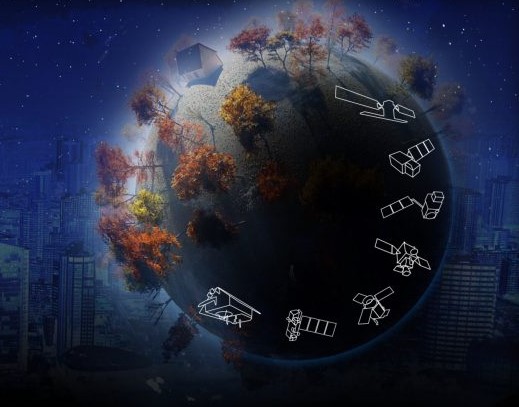The European Commission has awarded a H2020 grant to a GMV-led consortium to make proposals for a future European Space Traffic Management (EUSTM) capability. The EU has started to develop independent space situational awareness (SSA) – separate to US space surveillance and tracking (SST/SSA) – and EUSTM aims to define future traffic management elements.
The EUSTM project runs for 20 months until August 2022 with a global budget of EUR1.5 million and is supported by 18 European industries and institutions.
The EUSTM programme includes:
- Counting on the main experts in all applicable domains within the team
- consulting the main stakeholders worldwide in relevant domains
- defining the needs in terms of organisation and responsibilities, technology, policy, laws, guidelines, best practices and standards
- elaborating detailed specs, a preliminary design, a reference roadmap and a ROM cost analysis
- developing an innovative collaborative platform for exchange of information inside the team and with external stakeholders
- creating a community of interest on STM be active beyond the duration of the project
- organising workshops and a dedicated European STM Conference anchored to a space event.
In Europe, the SSA/SST remit is held by ESA and the European Commission. SSA/SST activities are currently focused on creating an architecture of radars, telescopes, SLR stations and data centers dedicated to the surveillance and protection of space infrastructure. They perform functions of detection, identification, and cataloging of objects that orbit the Earth. SSA/SST activities also support missions, the safety of satellites in Earth orbit, and reduce the risks of the re-entry of space objects into the Earth’s atmosphere. The importance of tracking space debris has come to the fore in the last two decades. Initiatives at a national and international level aim to tackle this issue by promoting prevention, achieving a better understanding of the situation, and pursuing active collision-avoidance operations as well as active debris removal.
Europe greatly benefits from the open policy of the U.S. federal government in terms of accessing SSA/SST data and services by means of dedicated SSA Data Sharing agreements. To ensure sovereignty, autonomy and leadership in this domain whilst reducing this dependability, the European Commission started to work on an independent SSA/SST capability. It has recently awarded a H2020 Grant to the EUSTM project, an end-to-end activity towards the definition of future European STM capabilities.
EUSTM´s objective is to strengthen the European public and private space sector, encourage an innovative, competitive, and profitable space industry, as well as a research community that develops and runs space infrastructure. EUSTM will roll out an innovative collaborative platform to encourage the exchange of information among team members and relevant external stakeholders. This platform’s goal is to create an active community of interest that will be an endless source of STM information for the EC.
The GMV-led EUSTM consortium is made up of the following18 European industries and institutions: Weber-Steinhaus and Smith (Germany); Europaisches Institut fur Weltraumpolitik (Austria); Spacetec Partners SRL and Qinetiq Space NV (Belgium), GomSpace (Denmark); Satellite Center of the European Union, ENAIRE, Payload Aerospace, SL (Spain); Iceye Oy (Finland); Eutelsat SA, PriceWaterhouseCoopers Advisory SAS, Office National d’Estudes et de Recherches Aerospatiales, Safran and Université Paris-Saclay (France); AVIO SPA (Italy); and Universitaet Bern, Clearspace SA, Sceye SA (Switzerland).
As well as leading and coordinating EUSTM consortium, GMV is also leading the work packets (WP) on SST technology applicable to STM in the EUSTM project.
For more information visit:




